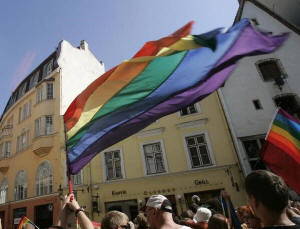|
Same-sex marriage is legal in much of western Europe but not in
central European countries which were once under communist rule
and members of the Moscow-led Warsaw Pact alliance but now
members of NATO and, largely, the EU.
"My message (to central Europe) is that it's a difficult fight,
but marriage and love is something that you have to promote,"
Prime Minister Kaja Kallas told Reuters after the vote.
"We have developed a lot in those 30 years, since we have freed
ourselves from the (Soviet) occupation. We are equals among
same-value countries," she added.
The bill received 55 votes in the 101-seat parliament, from the
coalition of liberal and social democratic parties which Kallas
has assembled following her strong win in the 2023 election.
The law will come into effect from 2024.
In the largely secular Baltic country of 1.3 million, 53% of the
population supported same-sex marriage in a 2023 poll by the
Centre for Human Rights. A decade ago the number was 34%.
However, 38% of Estonians still consider homosexuality to be
unacceptable. Same-sex marriage is opposed by the ethnic-Russian
minority, which constitutes a quarter of the country, with only
40% of them supporting it.
Gay people in Estonia tend to remain discreet about their
identity, and half have experienced harassment recently,
according to government.
"This was a good opportunity for the government, because the
public opinion on same-sex marriage has turned to positive, and
after this year's election it has the numbers to overcome the
conservative opposition," said Tomas Jermalavicius, Head of
Studies at the International Centre for Defence and Security.
Latvia and Lithuania, the other two Baltic countries which were
previously annexed by the Soviet Union, have same-sex
partnership bills stuck in their parliaments.
(Reporting by Janis Laizans in Tallinn and Andrius Sytas in
Vilnius, editing by Terje Solsvik and Ed Osmond)
[© 2023 Thomson Reuters. All rights
reserved.] Copyright 2022 Reuters. All rights reserved. This material may not be published,
broadcast, rewritten or redistributed.
Thompson Reuters is solely responsible for this content.

|
|



